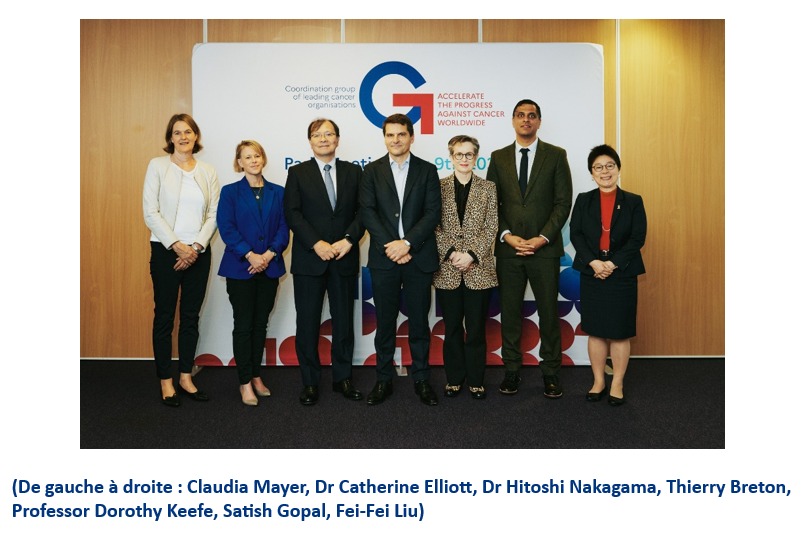Published on
Updated
Reading 2 mins.
At the initiative of the National Cancer Institute, a G7 du cancer brings together 7 organizations at the forefront of the fight against cancer. This group aims to strengthen cooperation between partners to accelerate the fight against the disease, and in particular to meet the most complex challenges.
According to estimates by the International Agency for Research on Cancer (IARC), 19.3 million new cases of cancer and 10 million deaths were recorded in 2020 worldwide. By 2040, the estimated number of new cases and deaths is 30.2 million and 16.3 million respectively. This increase is partly due to the growth and aging of the population. Faced with this challenge, the international community is now faced with complex scientific questions related to cancers and no country has the capacity to tackle them effectively alone.
Propose an international response against cancer
To deal with this global public health challenge, the members of the G7 Cancer rely on a concerted international response. This cooperation should make it possible to coordinate actions to accelerate progress in the fight against cancer: progress in cancer-related genetics and genomics, precision medicine in oncology, diagnosis using new liquid and synthetic biopsy techniques, the emergence new innovative treatments, the use of artificial intelligence and digital sciences…
The member organizations of G7 Cancer are:
- Australia – Cancer Australia
- Canada – Canadian Institute of Health Research (CIHR)
- France – National Cancer Institute
- Germany – German Cancer Research Center (DKFZ)
- Japan – National Cancer Center (NCC)
- United Kingdom – Cancer Research UK (CRUK)
- United States – Department of Health and Human Services, National Cancer Institute (NCI).

Four priorities of the G7 Cancer
This cooperation aims to improve knowledge of cancer mechanisms, accelerate the transfer of scientific discoveries and their clinical application, and stimulate innovation on an international scale.
During this first meeting, each organization presented the priority themes and actions that it would like to see addressed within the group. The themes on which there was consensus and have been selected for the coming years relate to:
- An international data strategy, focusing on pediatric cancers with the holding of an international conference on data strategy for pediatric cancers;
- Cancers with poor prognosis (pancreas/oesophagus/stomach and liver) with the establishment of an international dialogue concerning these diseases;
- Inequalities in cancer with the creation of a working group;
- Prevention (precancer, screening programs, early detection) with the creation of a working group.
With common commitments and priorities defined today, all G7 Cancer partners aim to advance the fight against cancer for all patients. The presidency and the secretariat of the group are entrusted to the National Cancer Institute for the next two years.

